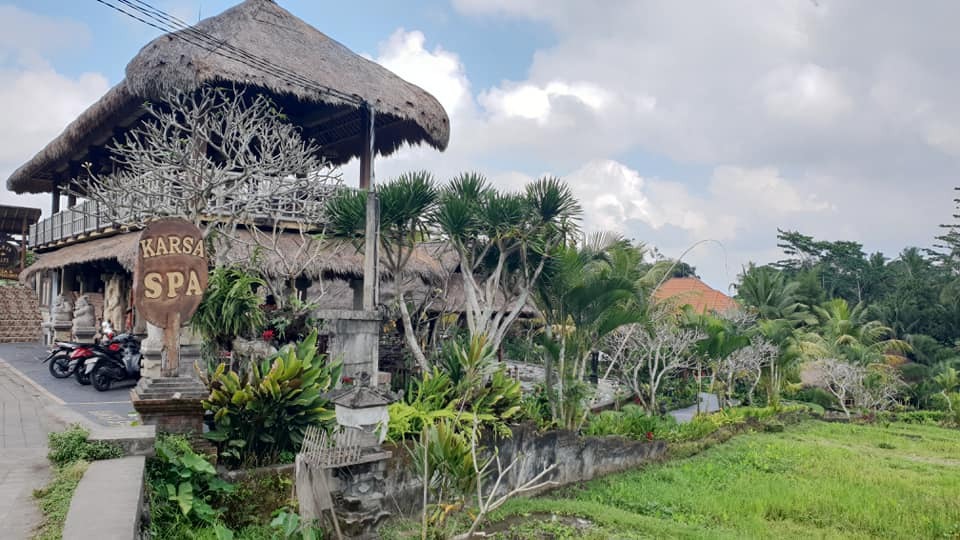Bali is often heralded as a paradise on Earth, with its lush landscapes, vibrant culture, and breathtaking beaches. However, like many tropical destinations, it is not without its natural disasters. From earthquakes to volcanic eruptions, and even tsunamis, being informed and prepared can make all the difference in ensuring your safety while enjoying everything this beautiful island has to offer.Having traveled to Bali many times, I’ve learned a great deal about safety amidst nature’s unpredictability. So, let’s explore some essential Bali safety tips for natural disasters, sprinkled with personal anecdotes and practical advice!
Understand the Risks
First things first: awareness is key. Bali is situated on the Pacific Ring of Fire, which makes it prone to seismic activity. In 2018, I found myself in Ubud when a 6.9 magnitude earthquake shook the region. It was a surreal experience—one minute I was relaxing by the pool, and the next, the ground was rolling beneath me. The best first step is to familiarize yourself with the types of natural disasters that could occur in Bali:
– Earthquakes: These are relatively common in the region.
– Volcanic Eruptions: Mount Agung, Indonesia’s most active volcano, is a significant concern.
– Tsunamis: Due to its coastal location, there’s a potential threat from tsunamis, especially after undersea earthquakes.
Make sure to research the current geological situation before you travel, and keep an eye on news updates about volcanic activity or seismic events.
Make A Safety Plan
You know that saying about failing to plan? Well, it definitely applies to travel safety. A few years back during my trip, I created a simple safety plan that greatly eased my mind. Here’s what it included:
1. Emergency Contacts: Save important numbers in your phone, including local authorities, your country’s embassy, and your accommodation.
2. Meeting Points: Identify a safe meeting place in case you get separated from your travel companions. For example, the local community center or a nearby hotel can be great.
3. Local Evacuation Routes: Research the quickest evacuation routes from your location. If you find yourself in a coastal area, be aware of high-ground options if a tsunami warning is issued.
During that earthquake in Ubud, having a plan helped me navigate the chaotic aftermath, and I was able to check on my friends quickly.
Stay Informed
Wherever you find yourself in Bali, staying informed is crucial. Download weather and safety apps like “MyEarthquake” or “USGS Earthquake Hazards.” They provide timely alerts and updates. I remember using one of these apps during a trip to Seminyak and receiving notifications about mild seismic activities occurring around the area.
Additionally, follow local news on social media or rely on your hotel’s staff for updates. They are usually well-informed about any immediate risks and can guide you on what precautions to take.
Know Your Accommodation’s Safety Plan
Before booking your accommodations, it’s wise to inquire about their safety protocols. Many resorts and hotels in Bali are well-prepared and have structured emergency exit plans or designated safe areas. During one visit, my resort held a safety briefing regarding tsunami protocols, which reassured all of us.
If you’re staying in a more remote or local-style setup, ask the owner about their disaster plans. Understanding how they would respond during a crisis can give you more confidence.
Pack an Emergency Kit
While beaches and sunshine may be the first things on your mind, preparing a small emergency kit before making your journey to Bali is highly recommended. Here’s what I packed during my last visit:
– First-Aid Supplies: Band-aids, antiseptic wipes, any personal medications, and pain relief.
– Water and Snacks: Non-perishable food items and bottled water can be lifesavers if you’re stranded temporarily.
– Flashlight and Batteries: In case of power outages.
– Portable Phone Charger: To keep your phone charged for updates.
Even if you’re just at the beach, it’s wise to have some essentials handy. During that 6.9 magnitude earthquake, I was grateful to have a few snacks and a flashlight tucked away in my bag in case we lost power.
Stay Calm and Take Action
It’s natural to feel panic in a tense situation, especially if you’ve never experienced a natural disaster before. However, staying calm is your best ally. In that aforementioned earthquake, I remember taking a deep breath and urging my friends to do the same. Panic only leads to hasty decisions. Instead, focus on your safety and follow your emergency plan.
If an earthquake strikes, Drop, Cover, and Hold On”—that’s the mantra to remember. If you’re on the beach and a tsunami warning is issued, look for higher ground immediately. It’s critical to stay updated through reliable sources.
Participate in Local Preparedness Programs
While in Bali, I’ve found that many locals are eager to share their knowledge about safety and natural disaster responses. Don’t hesitate to join community meetings or workshops if available. Engaging with local residents can provide unique insights into their experiences, and you may learn about their traditional methods of staying safe.
For example, while hiking on Mount Batur, our guide spoke about the local community’s history with volcanic eruptions, emphasizing how they prepared and responded.
Final Thoughts
Bali is a treasure trove of experiences, but being smart about safety during natural disasters will enhance your adventures. Remember, preparedness is your best defense against the unpredictability of Mother Nature. The next time you see that gorgeous beach, know that you are equipped to handle whatever comes your way. I’ve enjoyed countless blissful moments in Bali; being informed and prepared allowed me to focus on the beauty of the island, knowing I was ready to face any unexpected twists.So, whether you’re sipping a coconut on the beach or exploring rice paddies, keep these Bali safety tips for natural disasters in mind and embrace your vacation to the fullest!






